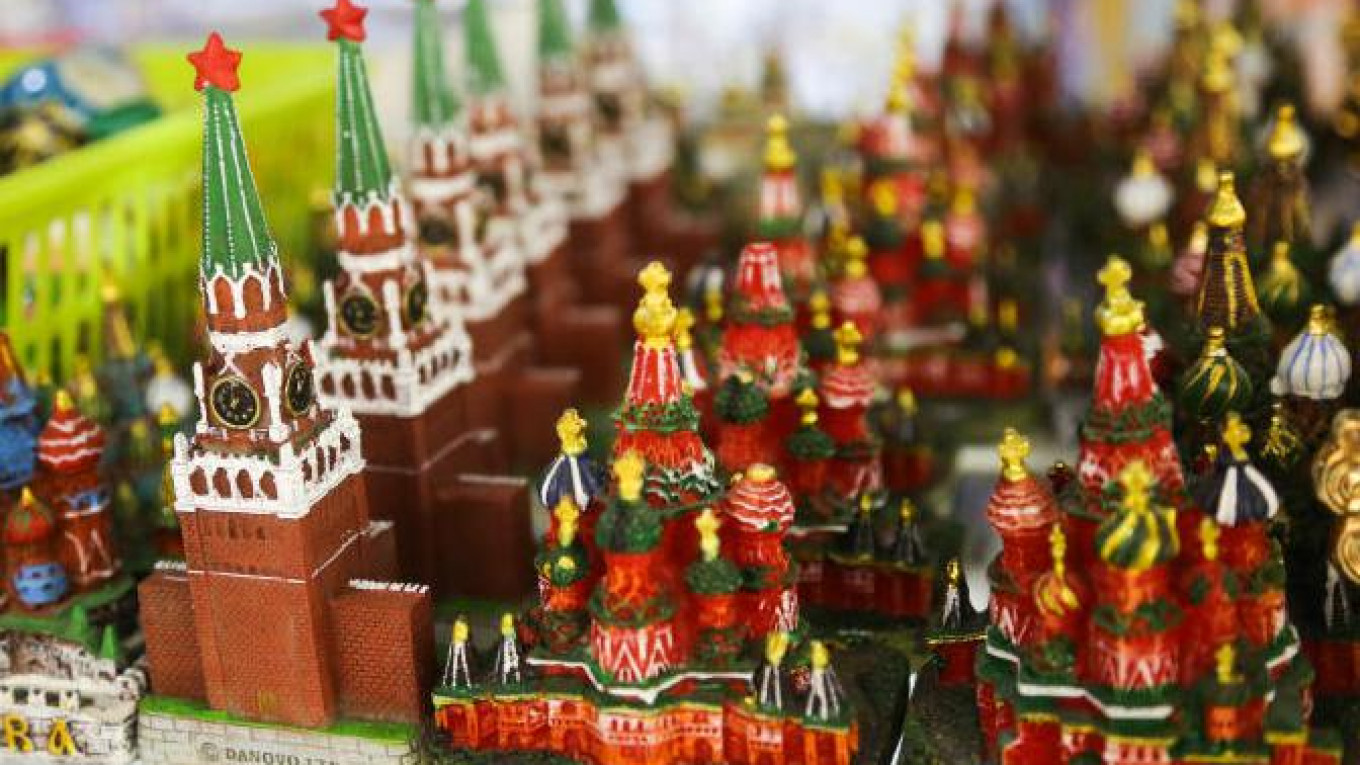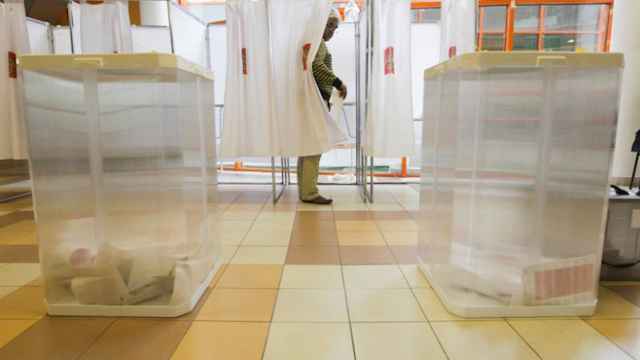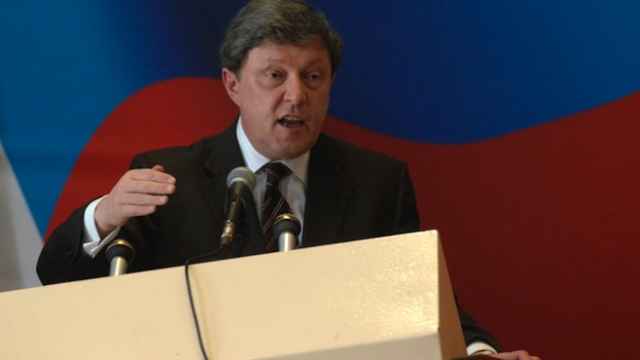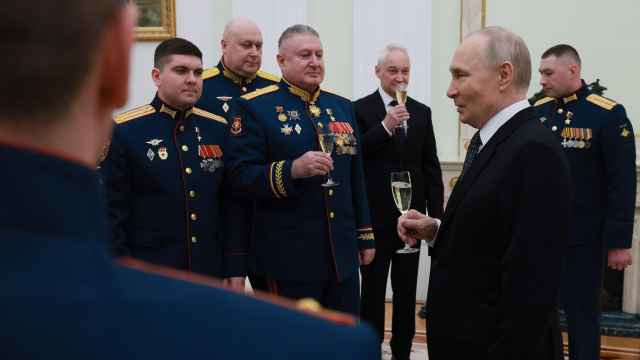Russian political parties and candidates are receiving covert state
funding through government contracts and subsidies, a report by
independent election monitor Golos revealed Thursday.
Private companies are more likely win government contracts if they
pledge part of their fee to Kremlin-friendly political parties, the
report claims.
Out of the 241 companies named in the study who
contributed at least 1 million rubles to various Kremlin-friendly
parties, 90 received state contracts. Of those 90, 80 donated part of
their windfall to United Russia, said the report’s author, Stanislav
Andreichuk.
On a regional level, the most lucrative government deals were on offer
in the Bashkiria, Tatarstan, Voronezh, and Tyumen regions, and the
Yamal-Nenets autonomous district. In these areas, the practice of
ensuring money was returned back to political parties was well in place,
the report said. In those regions, approximately one-third of all
companies contributing 1 million rubles or more to certain political
parties were the recipients of major government contracts, said
Andreichuk. “United Russia has an extensive system of donors that
receive state contracts, whereas other parties do not,” he said. “At the
same time, there are a limited number of state agencies issuing those
contracts. This shows how various interest groups will take shape in the
next Duma.”
Five Russian parties receive funding from the federal budget, based on
the amount of votes these received at the last general election: United
Russia, the Communist Party, A Just Russia, the Liberal Democrats, and
Yabloko. Of these five, only the opposition Yabloko party is not
represented in the State Duma. Four of them are almost entirely
dependent on those funds and receive little in the way of contributions
from other sources. The liberal Yabloko party is most dependent,
receiving 99 percent of its funding from the government, while United
Russia receives 68.6 percent.
State funding effectively integrates the parties into the state bureaucracy, reducing competition. “The story with state contracts and hidden government funding distorts the idea of competition even more,” Andreichuk said. “In addition to official sources, the government is also pouring money into some parties [via this channel].” The Kremlin has denied the claims on bias in the allocation of government tenders. “There is no connection between state contracts and contributions to United Russia,” said United Russia Central Executive Committee Head Maxim Rudnev.
Some businesses who refuted the claims. The manager of one defense
contractor mentioned in the report said there was no evidence of
companies contributing money to political parties in an organized scheme
of shadowy backroom financing. Each company makes its own decisions
about contributions based on its local political connections, he
claimed.
Ultimately, businesses do not want to fund opposition parties without
getting anything in return, said political analyst Konstantin Kalachev.
“Of course, the government has built a system on which systemic parties
are dependent. Businesses do not get involved in unpromising projects.
They want to get people into the executive branch, and who could Yabloko
put in power? It is understandable that the authorities would ensure
that they have a say over what government money is put into politics,”
Kalachev said.
That is why businesses prefer building relations with the authorities
directly, he said, rather than through political parties.
“The idea that
a business becomes part of the government system simply because it
contributed money to United Russia is nonsense,” he said. “These are
long-term relationships. The question is which came first – the chicken
or the egg? There is a good reason why major businesses in the regions
help United Russia, but they are successful not because of that.
Political parties appeal to them because they are successful. But even
so, how else should it function? Scratch my back and I’ll scratch yours –
that’s how the whole world works,” he said.
A Message from The Moscow Times:
Dear readers,
We are facing unprecedented challenges. Russia's Prosecutor General's Office has designated The Moscow Times as an "undesirable" organization, criminalizing our work and putting our staff at risk of prosecution. This follows our earlier unjust labeling as a "foreign agent."
These actions are direct attempts to silence independent journalism in Russia. The authorities claim our work "discredits the decisions of the Russian leadership." We see things differently: we strive to provide accurate, unbiased reporting on Russia.
We, the journalists of The Moscow Times, refuse to be silenced. But to continue our work, we need your help.
Your support, no matter how small, makes a world of difference. If you can, please support us monthly starting from just $2. It's quick to set up, and every contribution makes a significant impact.
By supporting The Moscow Times, you're defending open, independent journalism in the face of repression. Thank you for standing with us.
Remind me later.






